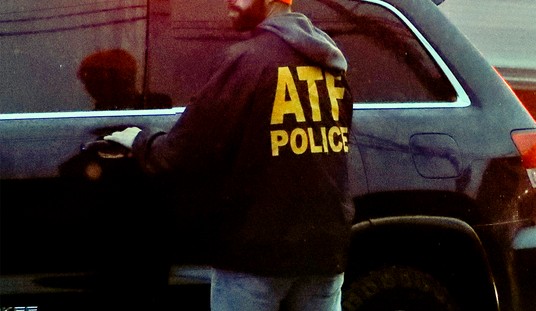There’s got to be a limit to that law, I mean he shot all three of them; there was no need for that,’ said Schumacher.
Schumacher does say he supports the right to bear arms and protect your home. But he doesn’t agree with shooting and killing intruders.
Owens sagely concluded:
I somewhat suspect that Mr. Schumacher’s position on shooting masked and armed robbers would be radically different if he was the victim of the sort of a terrifying home invasion carried out by his grandson and his three accomplices.
Perhaps reviewing several of the pertinent factors relating to self- defense would be helpful. First, the relevant Oklahoma statute (emphasis mine):
- 21-1289.25 PHYSICAL OR DEADLY FORCE AGAINST INTRUDER
- The Legislature hereby recognizes that the citizens of the State of Oklahoma have a right to expect absolute safety within their own homes or places of business.
- A person or an owner, manager or employee of a business is presumed to have held a reasonable fear of imminent peril of death or great bodily harm to himself or herself or another when using defensive force that is intended or likely to cause death or great bodily harm to another if:
- The person against whom the defensive force was used was in the process of unlawfully and forcefully entering, or had unlawfully and forcibly entered, a dwelling, residence, occupied vehicle, or a place of business, or if that person had removed or was attempting to remove another against the will of that person from the dwelling, residence, occupied vehicle, or place of business; and
- The person who uses defensive force knew or had reason to believe that an unlawful and forcible entry or unlawful and forcible act was occurring or had occurred.
- The presumption set forth in subsection B of this section does not apply if:
- The person against whom the defensive force is used has the right to be in or is a lawful resident of the dwelling, residence, or vehicle, such as an owner, lessee, or titleholder, and there is not a protective order from domestic violence in effect or a written pretrial supervision order of no contact against that person;
- A person who is not engaged in an unlawful activity and who is attacked in any other place where he or she has a right to be has no duty to retreat and has the right to stand his or her ground and meet force with force, including deadly force, if he or she reasonably believes it is necessary to do so to prevent death or great bodily harm to himself or herself or another or to prevent the commission of a forcible felony.
- A person who unlawfully and by force enters or attempts to enter the dwelling, residence, occupied vehicle of another person, or a place of business is presumed to be doing so with the intent to commit an unlawful act involving force or violence.
- A person who uses force, as permitted pursuant to the provisions of subsections B and D of this section, is justified in using such force and is immune from criminal prosecution and civil action for the use of such force…
- A law enforcement agency may use standard procedures for investigating the use of force, but the law enforcement agency may not arrest the person for using force unless it determines that there is probable cause that the force that was used was unlawful.

Therefore, in Oklahoma, and most other states, the law presumes someone that has broken into one’s home, or anywhere else they have a right to be, intended to commit a violent crime, a “forcible felony.” A resident need not spend ten minutes inquiring of the felons their intentions, or waiting for them to draw weapons and charge them over some set distance before acting. They are not required to wait for criminals to make a first shot before responding. Nor, as long as they acted within the law, may the resident be civilly sued for protecting their lives and the lives of the families.
Such laws have been a long time coming in many states, but are the very definition of common sense. Why should anyone be forced to flee their home, abandoning it and their families to criminals, or allow felons depraved enough to break into their homes to get in the first blow, knife thrust or shot? Why should such felons be given any benefit of the doubt, and why should they or their survivors be allowed to enrich themselves at the expense of their intended victims?
Also entering into the equation are the general rules governing the use of deadly force: means, opportunity and jeopardy. Does a criminal have the means to cause serious bodily harm or death? Does he have the opportunity to do it (means); is he close enough given his weapon, or disparity in physical size and strength (opportunity)? Is he actually putting his victim in jeopardy, or about to do so? Another way to look at these issues is:
Innocence: the defender must not be the initial or unlawful aggressor. People engaging in mutual combat can’t claim innocence. Because they’re actively trying to harm each other with no way to tell how far the conflict will go, they’re not engaging in self-defense. While I don’t have access to the police reports in the Oklahoma case, it’s clear the young man that shot the burglars was innocent. The law also presumes him innocent.
Imminence: This is another way of expressing the concept of jeopardy. One can’t use deadly force again a possible attack, or against an attack that might happen at some time in the future. The danger must be real, clearly about to occur, within fractions of a second or seconds, or already occurring. Clearly, the victim was confronted by three burglars—they had reportedly burglarized the home earlier in the day—wearing masks and carrying deadly weapons: a knife and brass knuckles. Even if they had been entirely unarmed, three against one represents a threat of serious bodily harm or death, and again, the law presumes they were present to do violence.
Proportionality: the threat can’t be of humiliation or minor injury. If the only thing in jeopardy is hurt feelings, even a slap to the face might not be proportional. A reasonable person must believe they’re facing a threat of serious–-Andrew Branca, whose book The Law of Self Defense, is definitive, uses the word “grave”–-bodily harm. Again, the burglars were masked, armed with deadly weapons, and apparently actively confronted a man armed with a rifle. And again, the law was on the victim’s side.
Reasonableness: A reasonable person of the same knowledge, abilities and in the same circumstances would be compelled to use deadly force. Without the police reports, it’s impossible to know these details, but media accounts indicate they do not intend to prosecute the victim, which directly suggests he acted reasonably and entirely within the law. How, facing a three-on-one threat, at least two of whom were armed with—perhaps brandishing—deadly weapons, could it be otherwise?

When all of the elements governing the use of deadly force have been fulfilled, when the law is entirely on the side of the victim, they are not required to use just a tiny amount of force. They may shoot their attacker—or in this case, attackers—with as large a gun as necessary, and as many times as necessary to stop attackers from doing what gave the victim the legal justification to shoot in the first place. If they survive, that’s fine, and dumb luck for the felons. If not, it was their choice and criminal intent, forced on the victim, which directly caused their deaths. In this case, apparently each of the burglars was struck with a single bullet.
Oklahoma law does void legal protections if the victim acted unreasonably. How might that be done? Say a burglar broke in and confronted a resident, who shot him once, causing the burglar to flee, only to collapse, still alive, on the front lawn. If the resident did nothing more than call the police and hold the felon at gunpoint, they would be entirely within the law, but if they shot the burglar again, further injuring or killing them when they presented no imminent threat, they would likely find themselves being charged with manslaughter at the least. None of that apparently occurred in this case.
One can certainly empathize with the pain of the man whose grandson forced an innocent to shoot him, but his sentiments don’t reflect common sense, or the law. The kind of weapon used was irrelevant, except that it obviously proved effective, and likely saved the innocent victim’s life.
Mike’s home blog is Stately McDaniel Manor.








Join the conversation as a VIP Member